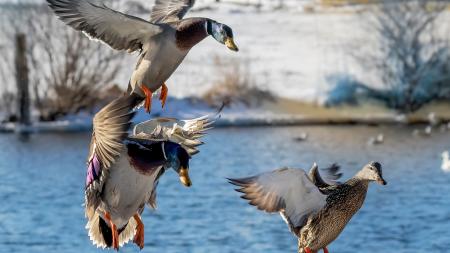The National Food Health and Quality Service (Senasa) confirmed this Saturday the second case of avian influenza (AI) H5 in two wild ducks found dead, this time in the province of Córdoba.
The detection was confirmed in analyzes carried out by the Senasa National Laboratory in samples taken from two dead wild ducks, both with positive results, in the Las Mojarras lagoon in the Cordovan department of General San Martín.
Senasa agents arrived at the scene from a notification received yesterday by the Cordoba Environmental Policeand took the samples that were sent for analysis and diagnosis to the organization’s Laboratory in Martínez, Buenos Aires province.
In the framework of its Resolution 147 that ordered the health emergency due to the presence of AI in wild geese In the Pozuelos lagoon, in the province of Jujuy, Senasa coordinates these surveillance actions with the National Parks Administration, the national ministries of Environment and Sustainable Development, Health, and Security, and the Wildlife Department.
These measures include border controls, communication actions and surveillance raids in birds that are in the surroundings of the sites where those that are migratory settle.
In this way, within the framework of surveillance actions, up to now they remitted for analysis at the Senasa Laboratory 67 samples of birds found dead, from which arose two positives: one in Jujuy and another in Córdoba.
The wild birdsmainly migratory, are the natural host of the virus (mainly ducks and geese) and is being the main spreading factor across the continent.
What is avian influenza
Highly pathogenic avian influenza (HPAI) is a disease with a high impact both on the diversity of wild birds and on poultry production, due to the fact that it causes very high mortality rates.
Although it is not possible to stop or mitigate the advance of the disease through the areas where migratory birds settle, it is possible to adopt preparation measures and mitigate its spread and its negative impact on poultry farming.
This is achieved through early detection, immediate attention to contain its spread to other birds within the country, and permanent reinforcement of biosecurity measures on commercial farms.
The AI virus is not transmitted to people by eating meat and eggs, and is only transmitted by direct contact when handling birds sick or dead from the virus.


















